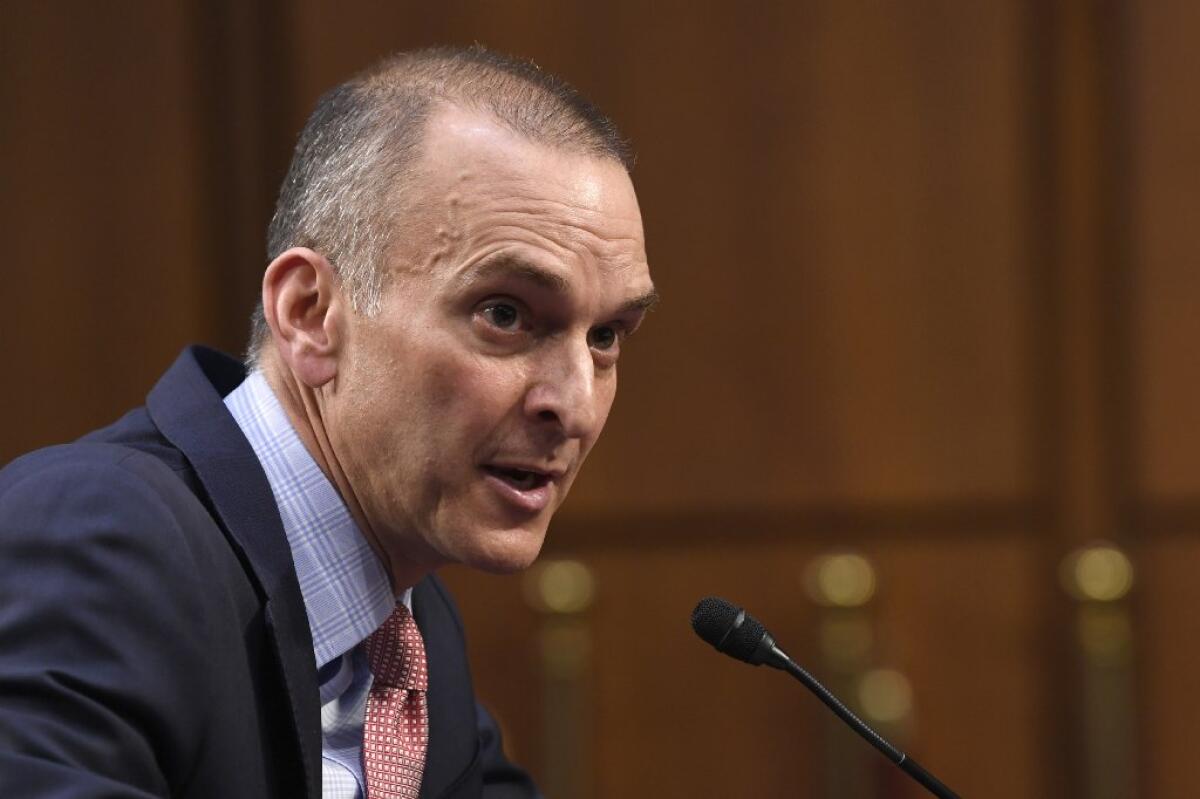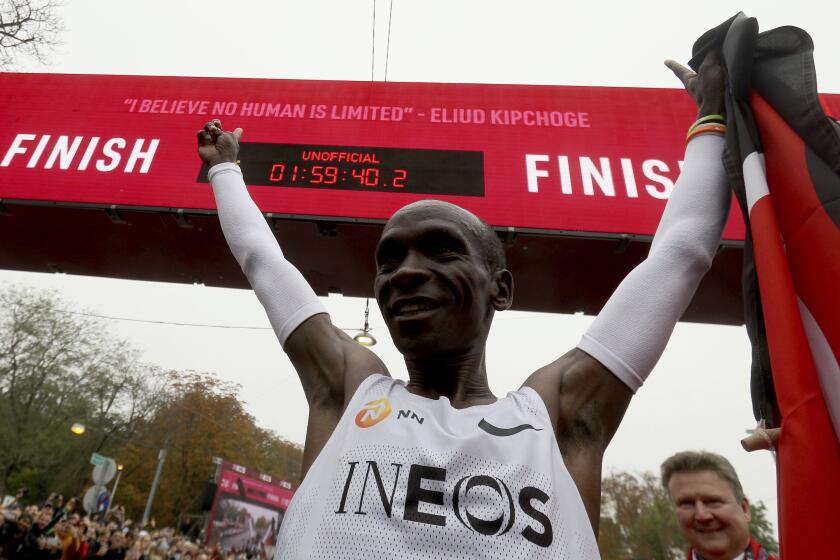U.S. anti-doping authorities urge Congress to criminalize cheating

- Share via
The 2028 Los Angeles Olympics may be eight years away, but U.S. anti-doping authorities have urged Congress to use the future Games as motivation to pass proposed legislation that would criminalize cheating in the world of sports.
The head of the U.S. Anti-Doping Agency spoke Wednesday on Capitol Hill, lending his support to a bill that would allow federal authorities to prosecute doping schemes domestic and abroad.
“One thing we can all agree on is that fraud, deception and robbery of athletes should not happen on our home turf during the Games we are hosting,” Travis Tygart told the Senate Commerce Committee.
The Rodchenkov Anti-Doping Act — named for a Moscow lab director who blew the whistle on systemic Russian doping — has already passed the House and has bipartisan support in the Senate. But it has attracted some concerns internationally.
Track officials are banning high-tech shoes that some elite runners wear, particularly the specialized Nike prototype that was used during a race last fall.
If passed, the law would not effect individual athletes but would apply to widespread doping schemes that impact international events where American athletes, broadcasters or corporate sponsors are involved.
This wide scope concerns the World Anti-Doping Agency, which has asked for extensive changes to the proposed legislation, saying it might disrupt cooperation between countries currently working together to fight doping.
The bill was prompted by the Russian scandal, which dates to the 2014 Winter Olympics and the discovery of a state-run doping program.
WADA recently banned Russia from competing as a nation at the 2020 Tokyo Olympics and other major sporting events over the next four years. But many in the sports world were angered that individual Russian athletes may compete as “neutrals” if they can persuade authorities that they have not cheated.
More to Read
Go beyond the scoreboard
Get the latest on L.A.'s teams in the daily Sports Report newsletter.
You may occasionally receive promotional content from the Los Angeles Times.








